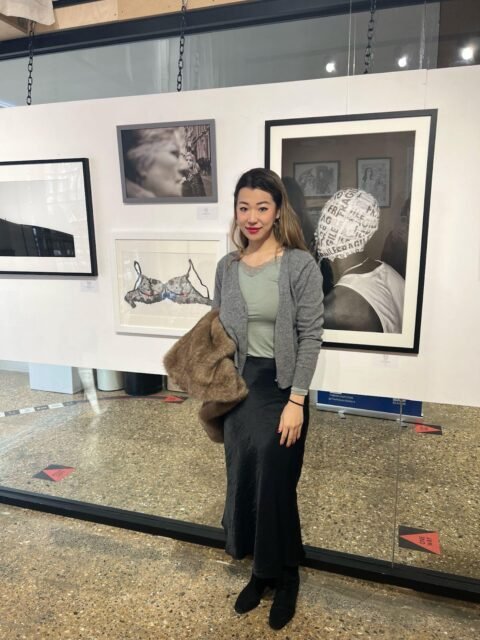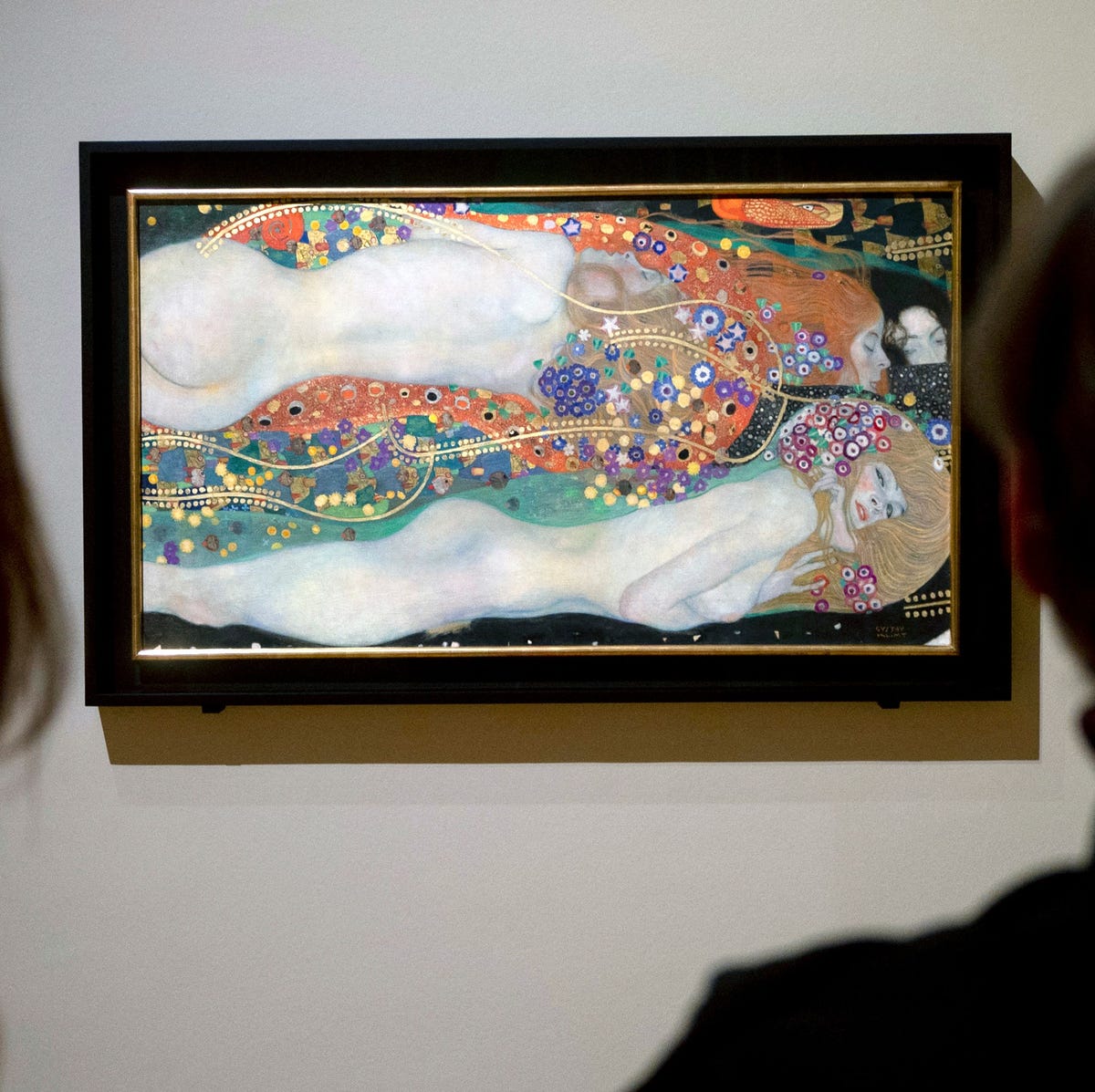
Salvator Mundi by Leonardo da Vinci

Price Paid for Painting: $450 million
Salvator Mundi sold for a little over $450 million at a Christie’s auction in 2017 to an anonymous buyer. The New York Times reported the buyer was acting for a Saudi prince, Bader bin Abdullah bin Mohammed bin Farhan al-Saud—the painting has since been under the ownership of the Saudi Arabian culture ministry.
Salvator Mundi, translated to “Savior of the World,” is not only the world’s most expensive painting—it’s possibly the most controversial painting, as well. Many scholars doubt that the work was entirely done by Leonardo da Vinci, citing the overall composition doesn’t align completely with da Vinci’s style. One analysis conducted by the Louvre in 2018 concluded the picture slowly evolved with Leonardo adding the hands and arms later.
Interchange by Willem de Kooning

Price Paid for Painting: $300 million
Regarded as the “artist’s artist,” Dutch-American artist Willem de Kooning shaped the abstract expressionist style with his gestural works often based on based on figures, landscapes, and still life. Interchange represents the shift in de Kooning‘s work from painting mostly women to more abstract urban landscapes. The focal point of the piece is the pink center, which represents a woman reclining amongst a busy background. Kenneth C. Griffin acquired the oil painting for $300 million from the David Geffen Foundation in September of 2015.
The Card Players by Paul Cézanne

Price Paid for Painting: $250 million
During the 1890s, Paul Cézanne created a series of five works depicting labor workers playing cards. The calm nature of the painting—which depicts two men immersed in a game—is a departure from Cézanne’s previous dramatic and colorful works. While most paintings in the series are displayed at museums throughout the world, this particular one was bought by the royal family of Qatar for $250 million in 2011.
Advertisement – Continue Reading Below
Nafea Faa Ipoipo? by Paul Gauguin

Price Paid for Painting: $210 million
Nafea Faa Ipoipo?, translated to “When Will You Marry?,” is one of the first paintings Paul Gaugin painted after his first trip to Tahiti in 1891. The painting focuses on a native young woman donning a white flower in her hair (in traditional Tahitian culture, a flower in the hair indicates the person is ready for marriage) and her mother sitting protectively over her. It was originally reported that the Gaugin painting was sold by Swiss businessman Rudolf Staechelin to a Qatari buyer for $300 million. However, a lawsuit in 2017 later revealed the painting only sold for $210 million.
Number 17A by Jackson Pollock

Price Paid for Painting: $200 million
A leader in the abstract expressionist movement, Jackson Pollock rose to fame for his “drip” technique, where Pollock would pour paint onto canvas—often laid onto the floor—as a way to convey emotion through movement. Number 17A—an abstract painting featuring a kaleidoscope of colors across a fiberboard canvas— is one of Pollock’s early works featuring this technique. Billionaire Kenneth C. Griffin bought the painting in 2015 for $200 million from the David Geffen Foundation.
The Standard-Bearer by Rembrandt
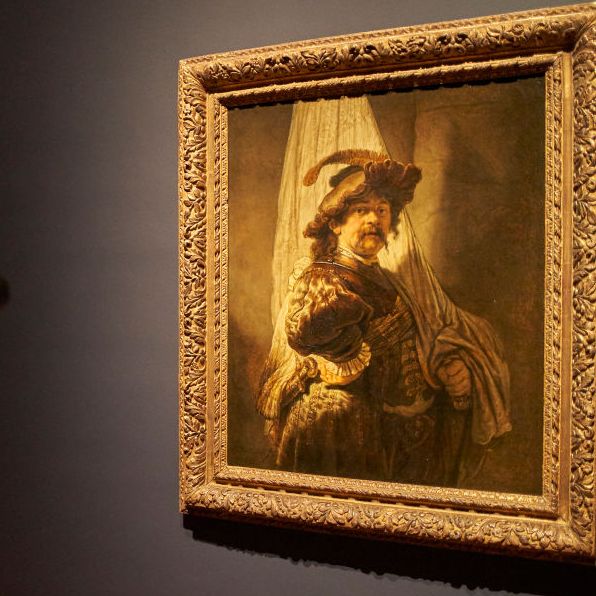
Price Paid for Painting: $198 million
Touted as one of Rembrandt’s most vibrant masterpieces, The Standard-Bearer is a 1636 self-portrait of the Dutch Golden Age artist. The painting once belonged to England’s King George IV before the Rothschild family acquired it in 1844. In late 2021, the Dutch government announced it planned to purchase the artwork from the Rothschilds for the country’s national collection. The painting was finally sold to the Netherlands for €175 million (around $198 million) in 2022 and has since been on special display at museums throughout the country.
Advertisement – Continue Reading Below
Shot Sage Blue Marilyn by Andy Warhol
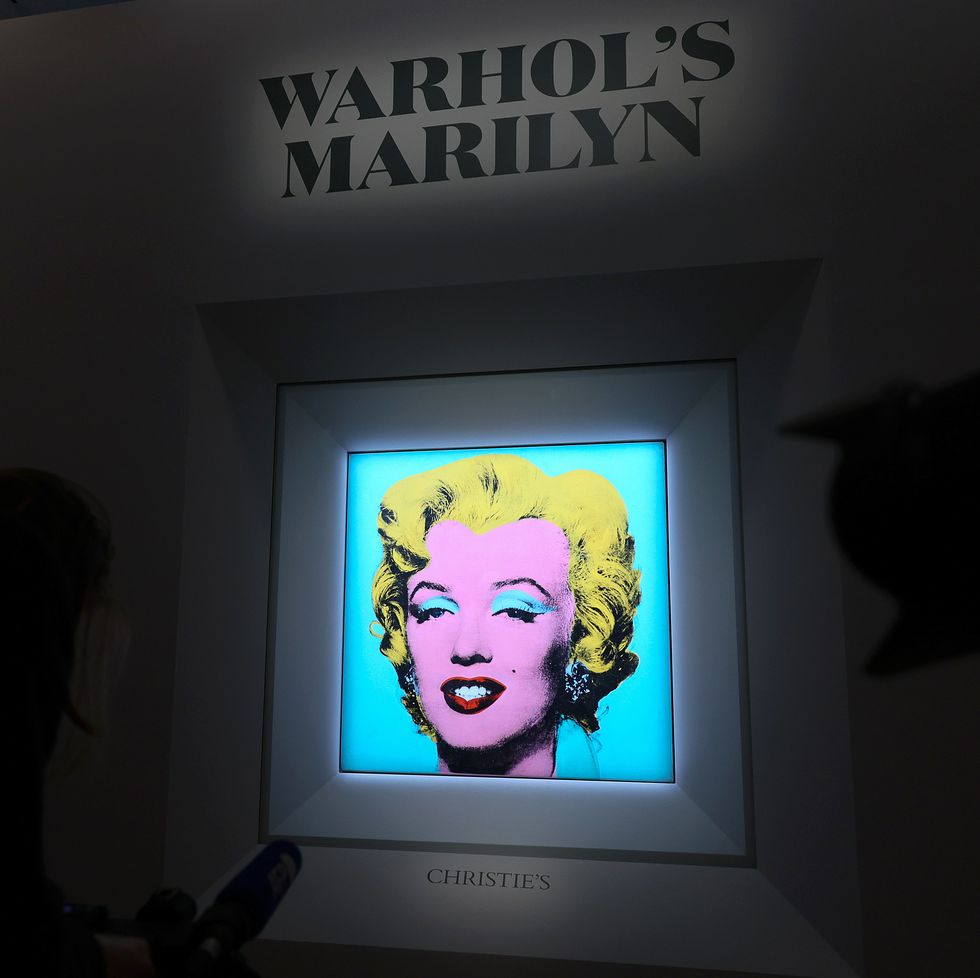
Price Paid for Painting: $195 million
Andy Warhol’s Shot Sage Blue Marilyn shook the art scene when it sold for just over $195 million to American art dealer Larry Gagosian during Christie’s sale in 2022. A signature work in his oeuvre, Warhol created the painting, which is part of a five-painting series, using a silk-screen technique and a cropped publicity photo from the film Niagra. The series earned its name after performance artist Dorothy Podber famously came to Warhol’s studio and shot at four of the paintings with a pistol. They were subsequently repaired, but the name remained.
No. 6 (Violet, Green and Red) by Mark Rothko

Price Paid for Painting: $186 million
In line with many of his works, Mark Rothko’s No. 6–completed in 1951—features two expanses of violet and vibrant red separated by a ban of green. Each of the three areas is softened around the edges, appearing as though the assertive colors are naturally fading into each other. The piece was privately sold in 2014 for an outstanding $186 million, establishing a new record for the painter.
Portraits of Maerten Soolmans and Oopjen Coppit by Rembrandt van Rijn

Price Paid for Painting: $180 million
The pair of full-length wedding portraits of Marten Soolmans and Oopjen Coppit were completed by a young Rembrandt in 1634. Unlike other 17th-century portrait pairs, the two paintings have been kept together since their creation. The Rothschild family came into possession of the portraits in 1878 and later sold the pieces through Christie’s to two museums, the Louvre and the Rijksmuseum. The two European museums take turns displaying the portraits, ensuring they will never be separated.
Advertisement – Continue Reading Below
Water Serpents II by Gustav Klimt

Price Paid for Painting: $170 million
Completed in 1907, Water Serpents II is the second in a series depicting the sensual nature of the female form. During World War II, the lavishly decorated painting was confiscated from Jewish collector Jenny Steiner by the Nazis and given to a Nazi filmmaker. The piece reappeared in the public eye when it was put up for auction by Sotheby’s in 2015. After a couple of changes of ownership, the painting was sold once more in 2017 to an undisclosed buyer for $170 million. It’s now on display at the Van Gogh Museum in Amsterdam.
Sarah DiMarco (she/her) is the associate editor at VERANDA, covering all things design, architecture, art, gardens, jewelry, travel, wine and spirits. She also manages social media for the brand.
Watch Next
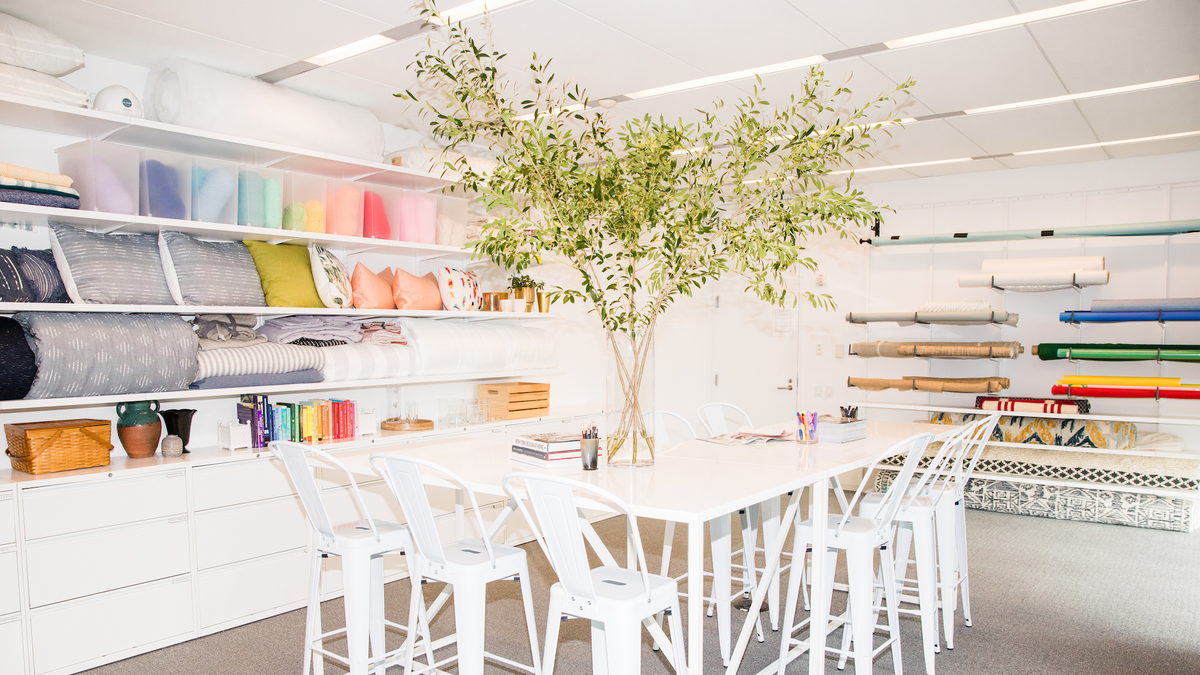
Advertisement – Continue Reading Below
Advertisement – Continue Reading Below
Advertisement – Continue Reading Below



